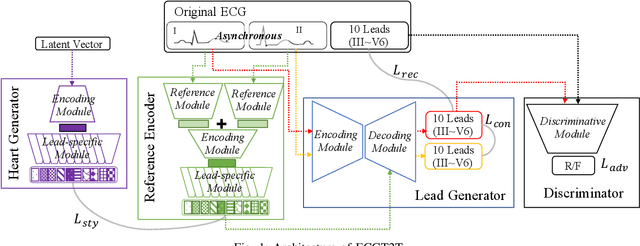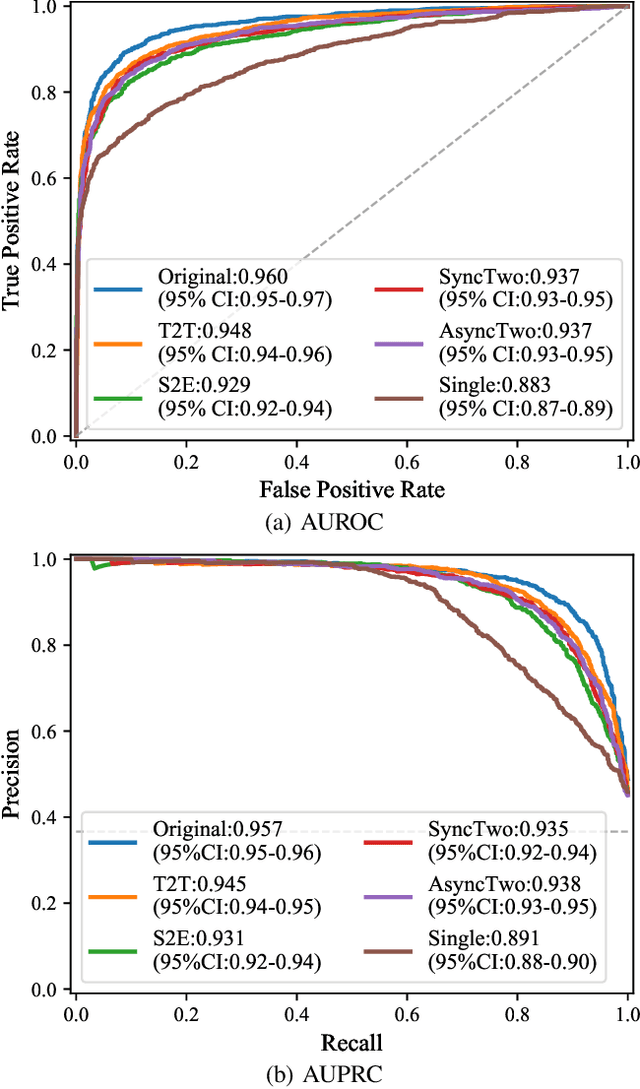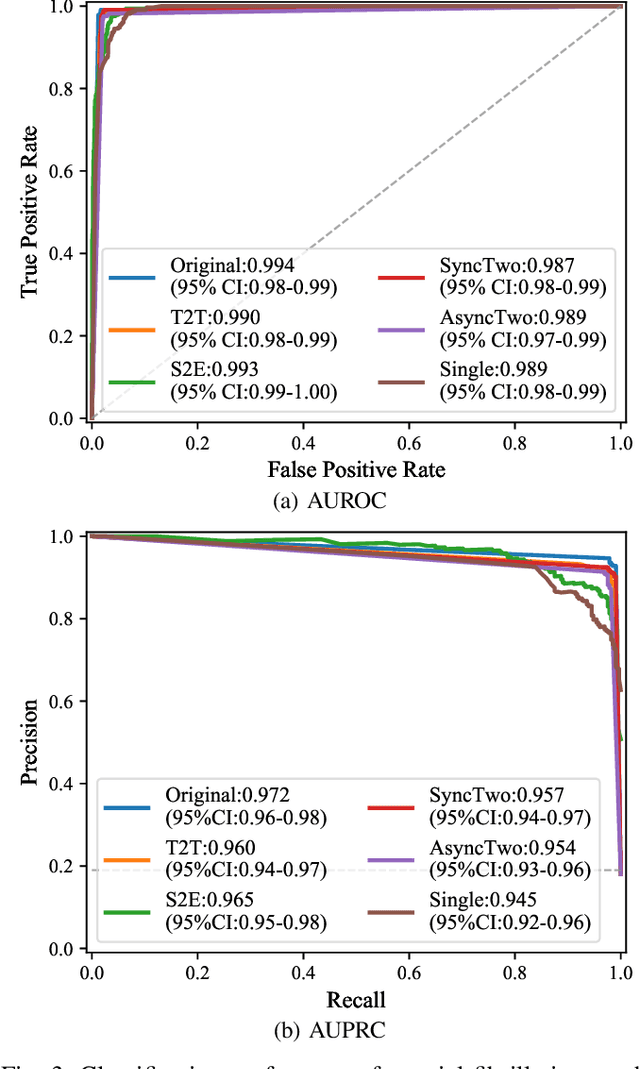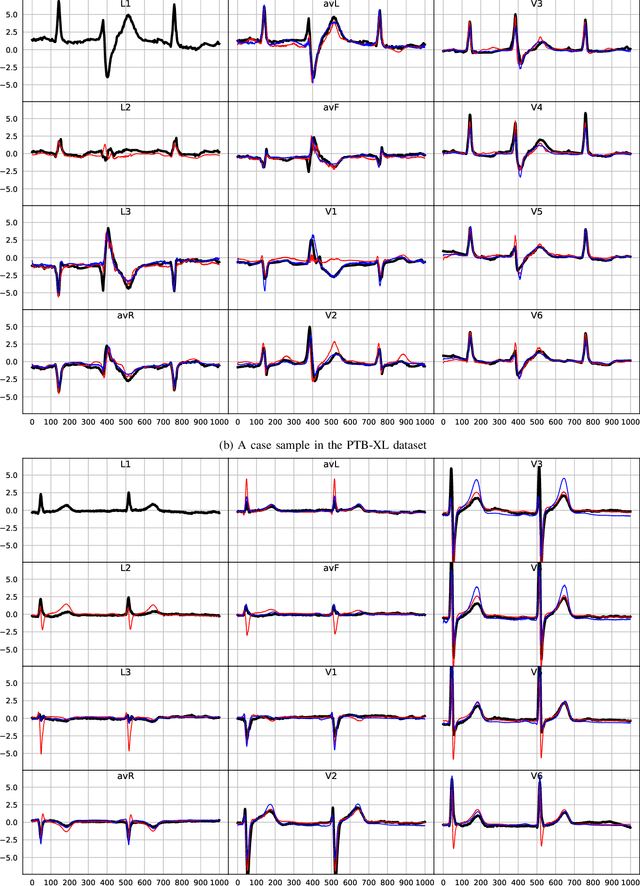ECGT2T: Electrocardiogram synthesis from Two asynchronous leads to Ten leads
Paper and Code
Feb 28, 2021



The electrocardiogram (ECG) records electrical signals in a non-invasive way to observe the condition of the heart. It consists of 12 leads that look at the heart from different directions. Recently, various wearable devices have enabled immediate access to the ECG without the use of wieldy equipment. However, they only provide ECGs with one or two leads. This results in an inaccurate diagnosis of cardiac disease. We propose a deep generative model for ECG synthesis from two asynchronous leads to ten leads (ECGT2T). It first represents a heart condition referring to two leads, and then generates ten leads based on the represented heart condition. Both the rhythm and amplitude of leads generated by ECGT2T resemble those of the original ones, while the technique removes noise and the baseline wander appearing in the original leads. As a data augmentation method, ECGT2T improves the classification performance of models compared with models using ECGs with a couple of leads.
 Add to Chrome
Add to Chrome Add to Firefox
Add to Firefox Add to Edge
Add to Edge